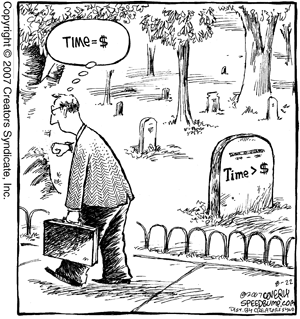I find myself in this predicament, i.e. "too much money in tax deferred". As someone earlier in the thread said, it is better to have a tax problem than an income problem. Nevertheless, it is a problem.
As it stands, when I am forced to take RMD's it won't be pretty, and I will find myself well into the 32% (Single) federal tax bracket, and perhaps in the 35% one. That's assuming the current brackets remain. If we go back to the old tax rates, I will find myself anywhere between -1% (compared to now) to +4%, plus the loss of the now large standard deduction.
But it is what it is. My original "plan" (when I retired in 2009) was to do Roth conversions. Instead, I ended up working in career #2 which caused my ability to convert to become pretty much non-existent. On top of that I foolishly continued to do tax-deferred (up until a few years ago).
Another "bad" (because it was good) problem - last year I had more interest income in my tax deferred accounts (from T-Bills and CD's) than what I was able to do as a Roth conversion! So even though I did some conversion, the expected eventual RMD went up instead of down.
Now that I am on Medicare (part B) IRMAA has raised its ugly head, further complicating things. I had planned on going to the top of the 24% federal bracket via Roth conversions, but now am hesitant to go beyond 160K or so to stay in the $175 (roughly) per month IRMAA impact category.
But it is what it is, and I'd rather have this problem than the problem of not having enough to pay my bills.

